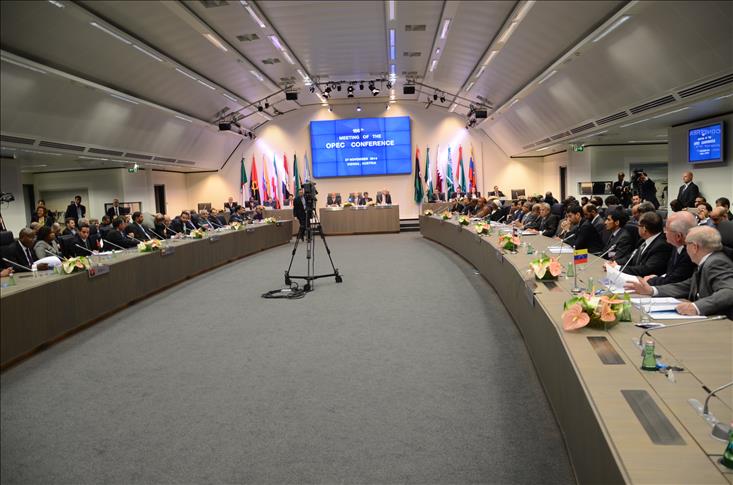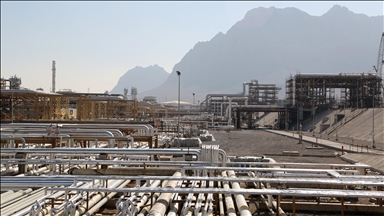
By Ovunc Kutlu
ANKARA
OPEC's influence on global oil prices is waning as it failed to cut production at its meeting Thursday to respond to the decline in oil prices, experts say.
The much-anticipated meeting of OPEC, the Organization of the Petroleum Exporting Countries, in Vienna to discuss strategies to cope with falling oil prices resulted in a decision to not reduce oil production through the first half of 2015, a decision that experts say will deepen divisions between member states.
The price of the global benchmark Brent crude oil fell from $115 per barrel in June to a four-year low, below the $77 mark, in November.
"The influence of OPEC is waning as the cartel suffers from chronic non-discipline among its members," said Sijbren de Jong, an analyst at The Hague Centre for Strategic Studies.
While Saudi Arabia and Kuwait indicated earlier that they would not cut production in order to preserve their market shares, a number of members led by Venezuela favored lowering oil output to reverse the fall in oil prices, since their economies are dependent on revenues from oil exports.
Investors take the outcome as proof that OPEC is either unable or unwilling to cut output to support prices, says a report by Thomas Pugh, a commodities economist at Capital Economics, a London-based independent research company.
"OPEC has less influence over prices as production from non-OPEC countries and shale oil rises," said Valerie Marcel, an associate fellow at the London-based think tank Chatham House.
Non-OPEC production is led by the U.S., which takes full advantage of its shale revolution to increase its crude oil production, according to the U.S.' Energy Information Administration.
Winners and losers
"If prices are low, Saudi Arabia figures at least some shale oil is being priced out in the medium term," Marcel said.
"Saudi Arabia was quite concerned about the loss of market share in the U.S.," she said, emphasizing that Saudis would have lost both the U.S. and Asian market shares if they had cut production while the rest of the Gulf countries did not.
Saudi Arabia lowered its official sales price of oil to the U.S. recently to compete with domestic shale oil production.
"Saudi Arabia has huge financial reserves," de Jong said. "They can withstand an oil price slump for many years, but other members are not so fortunate."
The Pugh report indicates substantial disagreement between those members of OPEC, such as Iran and Venezuela, who had been calling for production cuts, and the Gulf members, who are in stronger financial positions.
"While Venezuela, Iran, Iraq, and Nigeria will be unhappy about not cutting production, Russia, a non-OPEC major oil producer, will feel the squeeze of a lower oil price," de Jong said.
"Iran may have to be cooperative with sanctions if the period of low oil prices persists, which may contribute to a change of heart of the Iranian government on the sanctions," he said.
Western powers have imposed sanctions on Iran due to its uranium enrichment, which they fear indicates a nuclear weapons program. Iran says its nuclear program is for peaceful purposes only.
Pugh says in his report that there could be an agreement between Iran and the U.S. regarding nuclear issues, which could open the door for a surge in oil exports from Iran before OPEC's next meeting in June.
The price of Brent crude oil fell from $77.35 per barrel on Thursday morning to $71.12 on Friday morning.
Anadolu Agency website contains only a portion of the news stories offered to subscribers in the AA News Broadcasting System (HAS), and in summarized form. Please contact us for subscription options.







